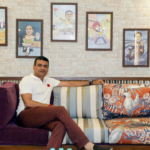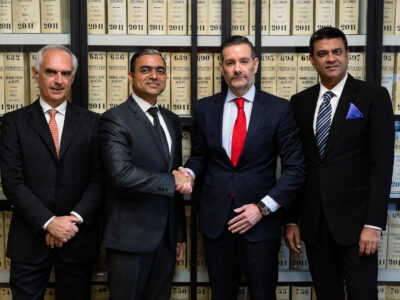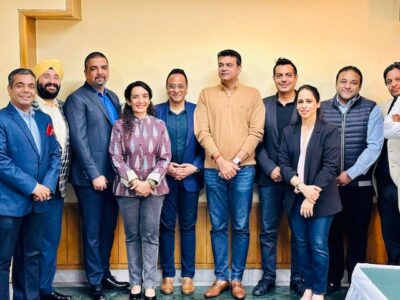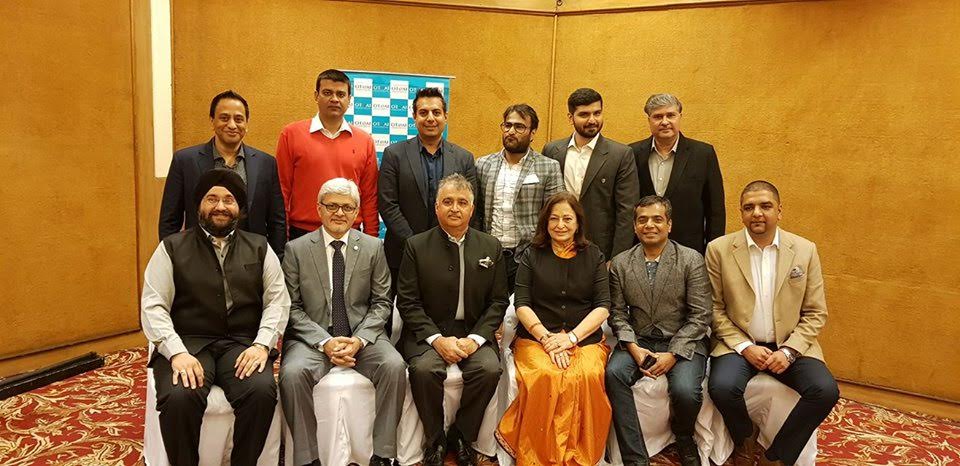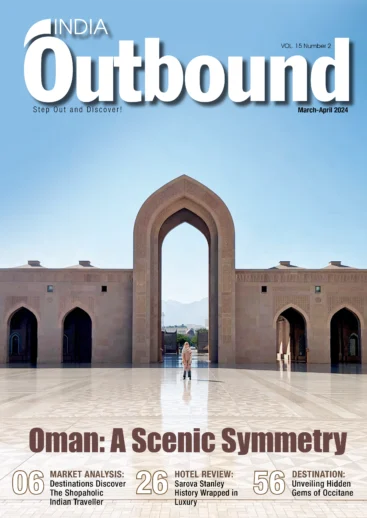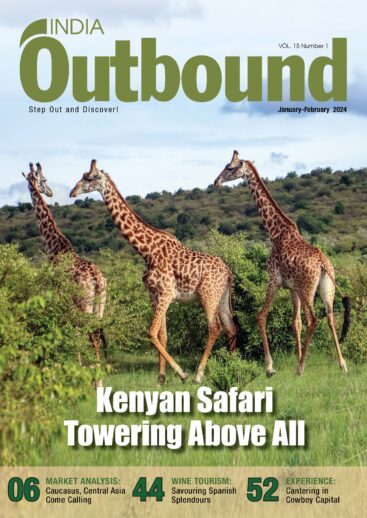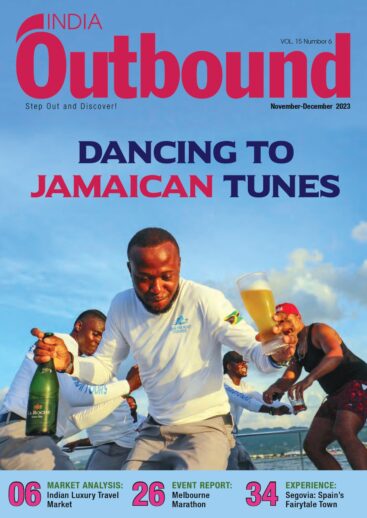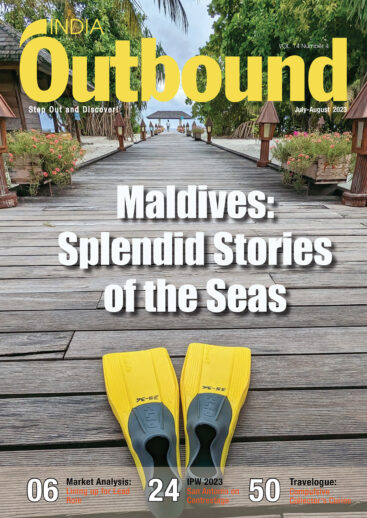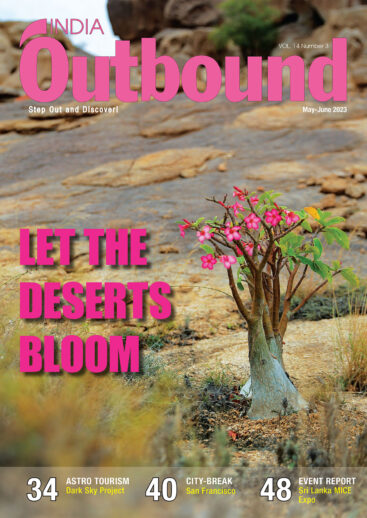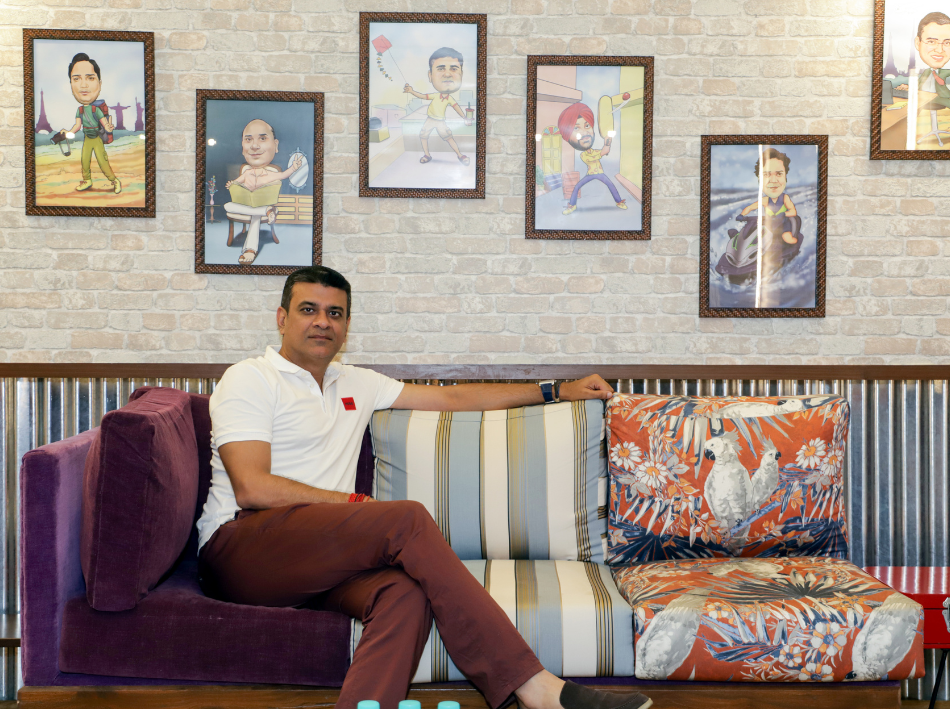
"It has been a great journey and being a leader takes a lot of hard work and luck, of course, and God has blessed me for that," says Ankush Nijhawan (Photo: India Outbound/Aman Kanojiya)
How has TBO’s journey been so far?
In 2005, I was running Travel Boutique which was a B2B, brick and mortar offline Delhi-centric business with about 180 partners. Our topline was INR 1.25 billion. In 2005, technology was coming into the travel ecosystem and online travel agencies were beginning to mushroom. That’s where the idea struck me that I should also look at the online route for me to grow in the B2B business. At that time, I was advised by a very wise man who told me that I should pioneer the B2B business online. It was also in that year that I met my co-founder and both of us decided to launch TBO.
We started from Delhi and grew rapidly, from 130 employees in 2005 to over 300 employees by 2012. Our first international office opened in Dubai in 2012. And from a two-person, small office somewhere in Dubai, we have come a long way to over 80 employees just in Dubai. Now we employ over 2,800 people in 122 countries in the world. I am proud that normally you have multinational companies coming to India, here is a company that was born in Delhi and now has a footprint all over the world.
Sometimes, I wonder how did this playbook open up, you know, starting from India to Dubai and now the whole world. I think a lot of hard work was behind it and I think we grabbed the opportunities at the right time.
We entered certain spaces at a time when people weren’t even thinking about it. Obviously adopting new technology was a big first mover advantage and that we carry even today. Even 17 years after TBO was born, we continue to innovate, to think and to hire the right people. We believe in writing the business verticals so that they can all become a big revenue drivers for us. So, I think we are on the right track to become the largest B2B platform in the world. We are already emerging as a very strong player globally and obviously a leader in India. We are very proud of what we have done and continue to strive harder as we move forward into the next decade.
Where else besides Dubai is TBO a significant player?
I will break the world into seven parts. India obviously is at the pole position. GCC, with Dubai, is number two for us and Saudi Arabia is very, very large. The next market, which came as a surprise and I must tell you, none of us, including both the founders, have never been to South America. So, I don’t know how, but it is the third largest market for us. In Europe, we are coming up very strongly and I think in Eastern Europe, we are dominating now, while in Western Europe, we are now becoming a very relevant player.
Asia-Pacific opened very late after Covid-19. When we began investing in that market, the pandemic happened. It has reopened only recently, yet, we have almost 100 people now in Asia-Pacific, in Philippines, Vietnam, Indonesia, Singapore, Thailand. Absolutely a big market that we will continue to penetrate, you know, and I think it really is a very important market in the TBO map.
What is your competitive edge?
I think we have learnt from the market what to build. As a B2B operator, we meet our clients very regularly, because we want to feel the pain and the challenges they face when they serve their clients against a big, large OTA. We learn from them, we get to know what is the need of the hour, so that we can serve our customers more efficiently and better.
I think the depth of the product is extremely important, but let’s not forget the width as well. There are many, many verticals today, just not airlines and hotels. A lot of ancillary products are getting stronger, such as sightseeing, car rentals and cruises, which are also being looked at very seriously by us.
Plus, I think the beauty in the distribution is there. So anything which can come to the funnel of the distribution in the B2B space is something we will obviously innovate and we continue to make sure that comes to the platform. It can obviously help us to scale and obviously make the life of the client much easier and for us client is a travel agent.
How will new tax on outbound tourism, TCS, impact demand?
So if the slab of tax remains at INR 700,000, which is what the recent notification says, I would say a majority of Indian tourists doesn’t spend more than that per person. For outbound tourism, the biggest chunk is middle and upper middle class and which will not come in the tax bracket. As far as luxury travellers are concerned, they are already tax payers, so they can easily set off the TCS against their income tax payable. So the slab will, I think, address the concerns of a lot of travellers. The only thing would be how do you map this. How will the travel agent know whether a person has exceeded that INR 700,000 already in the same year, so he has to collect the tax? I think some mechanism of calculation or mapping is needed. But I am certain that the banks will be able to help us with that.
Does lack of unity in travel industry in India undermine it?
Absolutely, yes. And I always draw parallel. There is something like Nasscom, which is the governing body for ITES industry. In our travel industry, there are parallel associations. If there was one voice under one brand and everybody goes to that one brand and that one, whether it is Federation of Associations in Indian Tourism & Hospitality (FAITH) or something else, is what the government can look at. So, one voice to represent the entire industry and it can be a professionally-run organisation, led by a professional from a consultancy like McKinsey or KPMG, so that he is not biased towards anybody in the industry, but he is looking at the logical problems of the industry and actually talking to the government, you know, just like what Nasscom does for the tech companies in India.
Currently, I think everybody has their own agenda, their own challenges and then the government gets confused. Currently, there are 10 faces talking to the government in different voices, I think all 10 should be united under one voice.
Which segment will drive the growth of outbound market?
I think leisure. You can’t go wrong with this, because everyone wants to travel. Single women want to travel, YOLOs want to travel, senior citizens want to travel. Who does not want to travel? So, leisure will be the biggest segment and MICE, corporate travel and weddings will also grow, but leisure will be the biggest piece of the cake of tourism overseas.
In future, where will the demand come from?
So as a company, that is what is our key focus. I think that not just Mumbai, Delhi or Bengaluru, the next economic growth drivers will be the Tier II cities and beyond. If I see my numbers, which I see very regularly, I am actually surprised to see the volume of business coming from the Tier II cities. It is mind boggling. So we are putting a lot of bets behind these markets and are putting in a lot of money and good people in these markets. Because this is from where the next wave, not only just for travel, I think for the whole country, will come.
What do you want to achieve next?
It has been a great journey and being a leader takes a lot of hard work and luck, of course, and God has blessed me for that. Plus, I have a great team and a great partner. Going forward, the ambition is obviously to be the largest platform in the world in the B2B space.
And I think what I want to be recognised as is the guy who did a great job, when I finally hang up my gloves, which is still many years away. I want to be recognised as a person who did the business in a very transparent, ethical way, always being very honest to my stakeholders, my partner and anybody in the ecosystem, including my employees.
You are known to be very optimistic, where does this optimism come from?
I think there is a vibe that you create around you. You know, if you manifest negativity, then negativity will come. If you manifest positivity, then that will come. Everybody has challenges. There is nobody in this world who can say I have a seamless life. It is a question of glass being half full or half empty. I always see it as half full. If you create that optimism, it takes a lot of stress away, it keeps the motivation growing among your colleagues. Otherwise, you know, you will obviously falter somewhere because you are panicking. But with the positive lens you always see things very differently. And of the day, you will achieve what you want to achieve, depending on how many obstacles and road bumps you have in your life.








